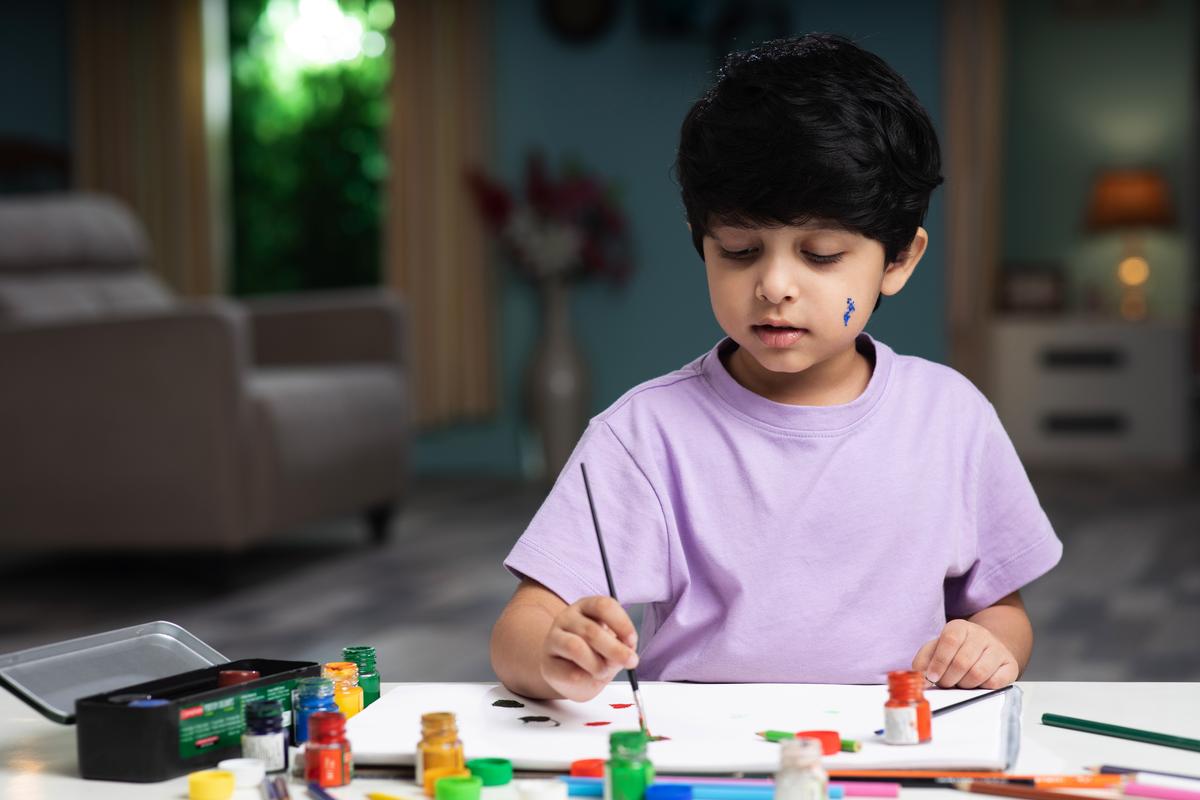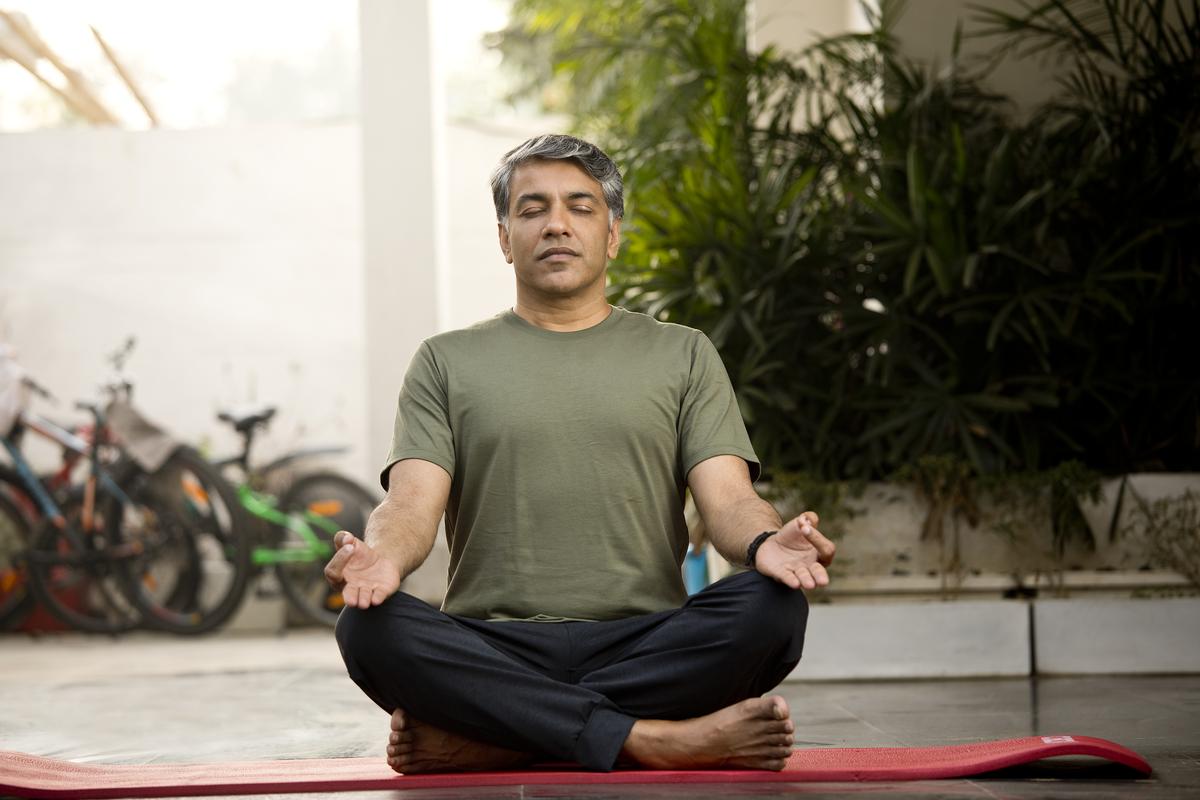
In 2020, during the pandemic, Arthi J, a 39-year-old HR professional from Chennai experienced a cocktail of strange emotions. An extrovert who loves going out, she found it stifling to be locked indoors. “I was scared; I felt like crying everyday. Finally, I met a psychiatrist who prescribed a short dose of anti-depressants. Eventually, things got better,” she says.
But last week, when a war-like situation broke out between India and Pakistan, she could feel those emotions coming back. She kept waking up repeatedly at night, and was angry, sad, and even fought with her family for no reason because of the anxiety. “What if we got locked in again because of the war? This thought brought back dark memories. What is the future going to be? What about all our plans? I even had thoughts of our cities being bombed and what if we had to leave the homes we have known,” she says.
“Those four days were full of horror,” says Shamima Mir, a resident of Srinagar. “People had heart attacks, there were blackouts, there was too much stress. Over the last two years, the economy had picked up, there was employment. Our anxiety had gone, we could move and breathe freely. But all that has changed now,” she says.
Shamima says many residents of Jammu and Kashmir do not know what is happening. Situations like these disrupt education, work, tourism, normalcy. And this uncertainty results in depression, mental stress and anxiety, she says.
Activists hold placards and shout slogans demanding peace and justice for victims of the Pahalgam attack. File
| Photo Credit:
AFP
Not just the conflict zones, people all over the country have been impacted by the situation that the country experienced last week.
The suddenness of the situation, the fear of the unknown and uncertainty is what has triggered many over the last week, says Dr Nikita Shah, a psychiatrist from Mumbai. “There has been a mass shift since last Thursday. Sixty per cent of my clients — mostly in the 20-30 age category — have spoken about this. It is a shift from the regular issues they have. They talk about how their family members have been affected by this and that in turn has affected them,” she says.
She observed that people with more empathy felt guilty about the dissonance because while the border towns faced blackouts and shelling, the others were attending dinners and sticking to plans that had been made before. The constant bombardment of information, opinions and even misinformation made the chaos worse. People were getting hooked to the 24-hour news cycle. While one of her patients absolutely needed to know everything that was going on to assuage her anxiety, some others dissociated completely. “One of them was finding it difficult to wake up in the morning. She said ‘we work hard to live a happy life and then one event turns everything upside down. What is the point of anything?’ I noticed a feeling of helplessness and pessimism in some of them,” says Dr Nikita.
It has even triggered anxiety in children. Nine-year-old Sasha Mony from Chennai is anxious. She heard about the recent strife between India-Pakistan and it scared her. So much so she wrote down a prayer on a piece of paper and kept reading it. “She was having trouble sleeping and was worried. She is a little more jumpy,” says her mother Chrishelle Mony. Few days ago, when Sasha heard a siren from one of the factories in Ambattur, she asked her mother if it was war related. “I ask her to write down or draw out her feelings, or draw a scene that makes her feel calm,” says Chrishelle.

Activities like drawing, yoga, grounding and breathwork, meditation, writing, journalling, discussion and debates with elders are beneficial.
| Photo Credit:
Getty Images
An otherwise cheerful seven-year-old (name withheld), also from Chennai, has been having similar concerns. Being exposed to news about the war and sirens, has led him to overthink. Even the sound of firecrackers from weddings triggers fear. He reacts to this by switching off lights and has been having troubling dreams at night.
“Children are anxious because there is so much information out there, be it social media or news channels,” says Nandini Raman, consultant counsellor, adding, “They have access to sensationalised news, they are privy to direct or indirect adult conversation, media, political ideologies… all of this can overwhelm children and increase their anxiety because they lack the cognitive ability to fully process and contextualise the information that they are consuming.”
Nandini adds that there is also the constant fear of safety of loved ones, and people and property resource being lost on both sides. There is a sense of insecurity that can trigger a lot of stirring reactions and create unrest, restlessness, nervousness and panic attacks. In a situation like this, coping mechanisms and calming activities help. Activities like yoga, grounding and breathwork, meditation, drawing, writing, journalling, discussion and debates with elders are beneficial, she says.

Doctors and therapists also suggest meditation and mindfulness exercises.
| Photo Credit:
Getty Images
As parents it is important to identify change in behaviour or understand the emotional distress the child is experiencing. She suggests checking children for these signs and symptoms: inability to sleep or sleep adequately, waking up with nightmares, if the child is not eating, and if overall functionality is being impacted, “then certainly you need to seek professional help”.
Children today are more deeply thinking and emotional, believes Nandini. They are also very sensitive and perceptive to emotional states of adults around them. If parents and caregivers are anxious, they also pick up on the feelings. “Age appropriate communication is key. We need to limit exposure of disturbing content that is available out there. Maintain calm and provide reassurance. We should encourage open communication that creates a safe space for children to express their feelings, clarify, ask questions, validate their feelings and emotions,” she explains.
Sheela Ilangovan, 39, a bank manager from Tiruchirappalli, was anxious about Indian soldiers. “My father and uncles are ex-servicemen, so I know what the ground reality is like. There is nothing called victory because there is loss of lives on both sides. I was worried what if Pakistan starts attacking civilians. I was scared soldiers would lose lives. I kept wondering what this situation would end up like?,” she says.
Border Security Force (BSF) personnel carry the body of BSF Constable Deepak Chingakham, who died during cross-border firing in Jammu, during a wreath laying ceremony at Imphal airport, Manipur, May 13, 2025.
| Photo Credit:
Reuters
While Dr Nikita has a lot of ways to deal with anxiety and depression in her patients, she also suggests learning somatic methods and doing a body scan. Creating offline communities will help in the long run. “Covid made people insular. It’s time to get away from the online world,” she says. We are being fed information everyday and this can overstimulate. Her advise is to earmark time away from social media and just sit in silence. A number of her patients constantly need a show or podcast running in the background. Being able to sit in silence for five minutes will go a long way in developing mindfulness and reducing overstimulation-based anxiety.
Exercising, she adds, is excellent. Even if it is not strength training, something as simple as going for a walk makes a difference. “It’s summer in India, but everything is blooming,” she smiles. And just observing these things and looking at what you do while on a walk can be an exercise in mindfulness.

Exercising or even going for a walk is helpful
| Photo Credit:
Getty Images
Published – May 15, 2025 12:38 PM is







